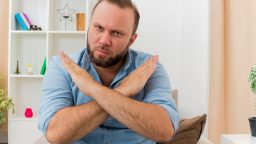In today’s fast-paced world, mental health has become an increasingly important topic. While traditional therapies such as psychotherapy and medication play a crucial role in managing mental health, many people are turning to alternative therapies to complement or even enhance their mental well-being. These alternative treatments offer holistic approaches to healing, focusing on the mind-body connection and promoting overall emotional health. Let’s explore some of the most popular alternative therapies that can help boost mental health and create a sense of balance and well-being.
- Mindfulness and Meditation
Mindfulness and meditation have been practiced for thousands of years, and their benefits for mental health are well-documented. Both techniques encourage focusing on the present moment, helping to reduce stress, anxiety, and depression. By learning to observe your thoughts without judgment, mindfulness allows you to break free from negative thought patterns and cultivate a sense of calm.
Meditation, on the other hand, involves quieting the mind and focusing on breathing or specific mantras. Regular meditation practice has been shown to reduce the symptoms of anxiety and depression, lower stress levels, and improve concentration and emotional regulation. Apps like Headspace or Calm provide guided sessions that can make it easier for beginners to get started.
- Acupuncture
Acupuncture is a traditional Chinese medicine practice that involves inserting thin needles into specific points on the body to balance the flow of energy, or „Qi.” It is often used to treat physical conditions, but it can also have a positive impact on mental health. Research suggests that acupuncture can help reduce symptoms of anxiety, depression, and stress by stimulating the release of endorphins and other neurotransmitters that help regulate mood.
For those looking for an alternative therapy to address both physical and emotional health, acupuncture may be a valuable option. It’s important to seek a licensed acupuncturist with experience in treating mental health conditions for the best results.
- Aromatherapy
Aromatherapy uses essential oils derived from plants to improve physical and emotional well-being. These oils are typically inhaled through diffusers, applied to the skin (diluted with a carrier oil), or used in baths. Many essential oils, such as lavender, chamomile, and bergamot, have calming properties that can help reduce anxiety, improve mood, and promote relaxation.
Studies have shown that aromatherapy can be effective in reducing symptoms of depression, anxiety, and stress. Inhaling the scent of essential oils can trigger brain activity in areas that are involved in emotions, which helps improve mental clarity and emotional balance. For example, lavender is known to reduce stress and promote restful sleep, while citrus oils like lemon and orange can lift your mood and provide an energising boost.
- Yoga
Yoga is a mind-body practice that combines physical postures, breathing exercises, and meditation to promote mental and physical health. It has been proven to reduce stress, improve flexibility, and increase feelings of calm. By focusing on deep, controlled breathing and being present in the moment, yoga can help individuals manage anxiety, depression, and even trauma.
Studies show that yoga helps regulate the body’s stress response, improving mood and reducing symptoms of mental health disorders. Whether you practice Hatha, Vinyasa, or restorative yoga, the gentle movements and focus on breath can provide a sense of peace and mental clarity. Many people report feeling less stressed and more centred after a yoga session, making it an excellent choice for anyone looking to boost their mental health.
- Naturopathy and Herbal Medicine
Naturopathy is a holistic approach to health that focuses on natural remedies and lifestyle changes to support overall well-being. Naturopaths use a variety of treatments, including herbal medicine, nutrition, and lifestyle counselling, to promote healing. Many herbs, such as St. John’s Wort, valerian root, and passionflower, are known for their mood-boosting and anxiety-reducing properties.
St. John’s Wort, for example, is often used as a natural remedy for mild to moderate depression, while valerian root is commonly used to treat insomnia and anxiety. While herbal remedies can be effective, it’s essential to consult with a qualified naturopath or healthcare provider before using them, as some herbs can interact with medications or have side effects.
- Art Therapy
Art therapy involves using creative expression, such as drawing, painting, or sculpting, to help individuals explore their emotions, reduce stress, and improve mental health. The process of creating art provides an outlet for self-expression and can help individuals process difficult feelings that might be difficult to verbalise.
Research has shown that art therapy can reduce symptoms of anxiety, depression, and PTSD. Engaging in artistic activities can lower stress hormone levels, promote relaxation, and provide a sense of accomplishment. Whether it’s doodling in a journal or creating a detailed painting, art therapy can help you reconnect with yourself and work through emotions in a non-verbal way.
- Sound Therapy
Sound therapy, also known as sound healing or music therapy, involves using sound vibrations and frequencies to promote mental and emotional health. It has been used in many cultures for centuries and is based on the idea that sound can affect the mind and body in profound ways.
One common form of sound therapy is binaural beats, which involve playing two slightly different frequencies in each ear. The brain perceives a third frequency (the difference between the two), which can influence mood and brainwave activity. Binaural beats are used to reduce anxiety, improve sleep, and enhance focus. Other forms of sound therapy include listening to calming music, singing bowls, or even nature sounds, all of which can help reduce stress and promote relaxation.
- Hypnotherapy
Hypnotherapy uses guided relaxation and focused attention to bring about a state of heightened awareness, or trance, where individuals are more open to positive suggestions. In this state, a trained hypnotherapist can help clients address various mental health issues, such as anxiety, stress, phobias, and even chronic pain.
Hypnotherapy works by reprogramming the subconscious mind, helping individuals break free from negative thought patterns and behaviours. It can also be useful in managing stress, improving self-esteem, and overcoming past traumas. Hypnotherapy is considered safe when performed by a qualified professional and can be an effective alternative therapy for boosting mental health.
- Tai Chi
Tai Chi is a form of Chinese martial arts that involves slow, deliberate movements and deep breathing to cultivate relaxation, balance, and energy. Known as “meditation in motion,” Tai Chi has been shown to reduce stress, improve mental clarity, and promote emotional balance.
Research suggests that practicing Tai Chi can reduce symptoms of anxiety and depression, improve cognitive function, and enhance overall well-being. The gentle, flowing movements and focus on breathing make Tai Chi an excellent choice for individuals looking for a low-impact activity that nurtures both the body and the mind.
Final Thoughts
Alternative therapies offer a wealth of options for improving mental health and overall well-being. Whether through mindfulness, acupuncture, yoga, or sound therapy, these holistic practices can complement traditional treatments and provide a deeper sense of balance and healing. However, it’s important to remember that not all therapies are suitable for everyone, and it’s always best to consult with a healthcare professional before trying a new treatment. By exploring these alternative options, you can find what works best for you and take positive steps towards better mental health.





